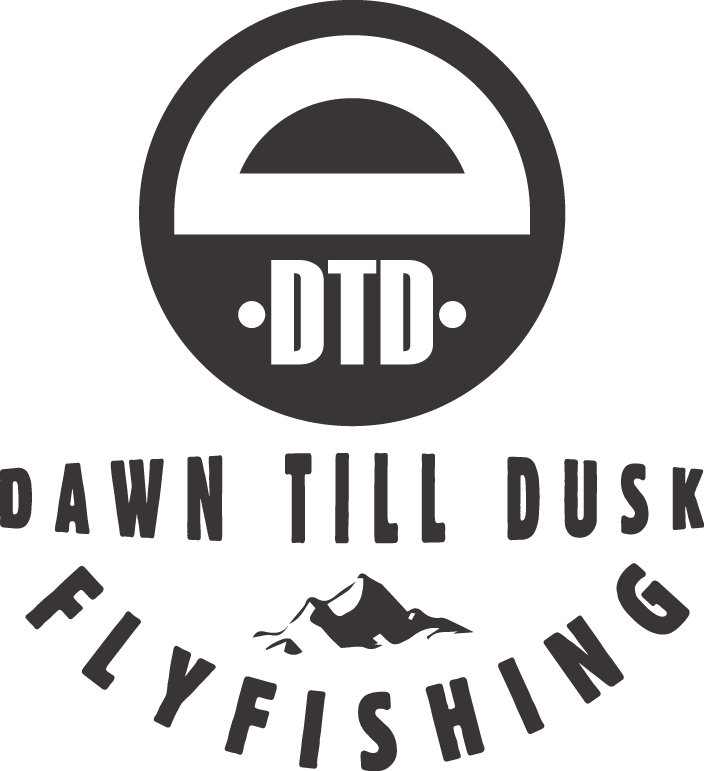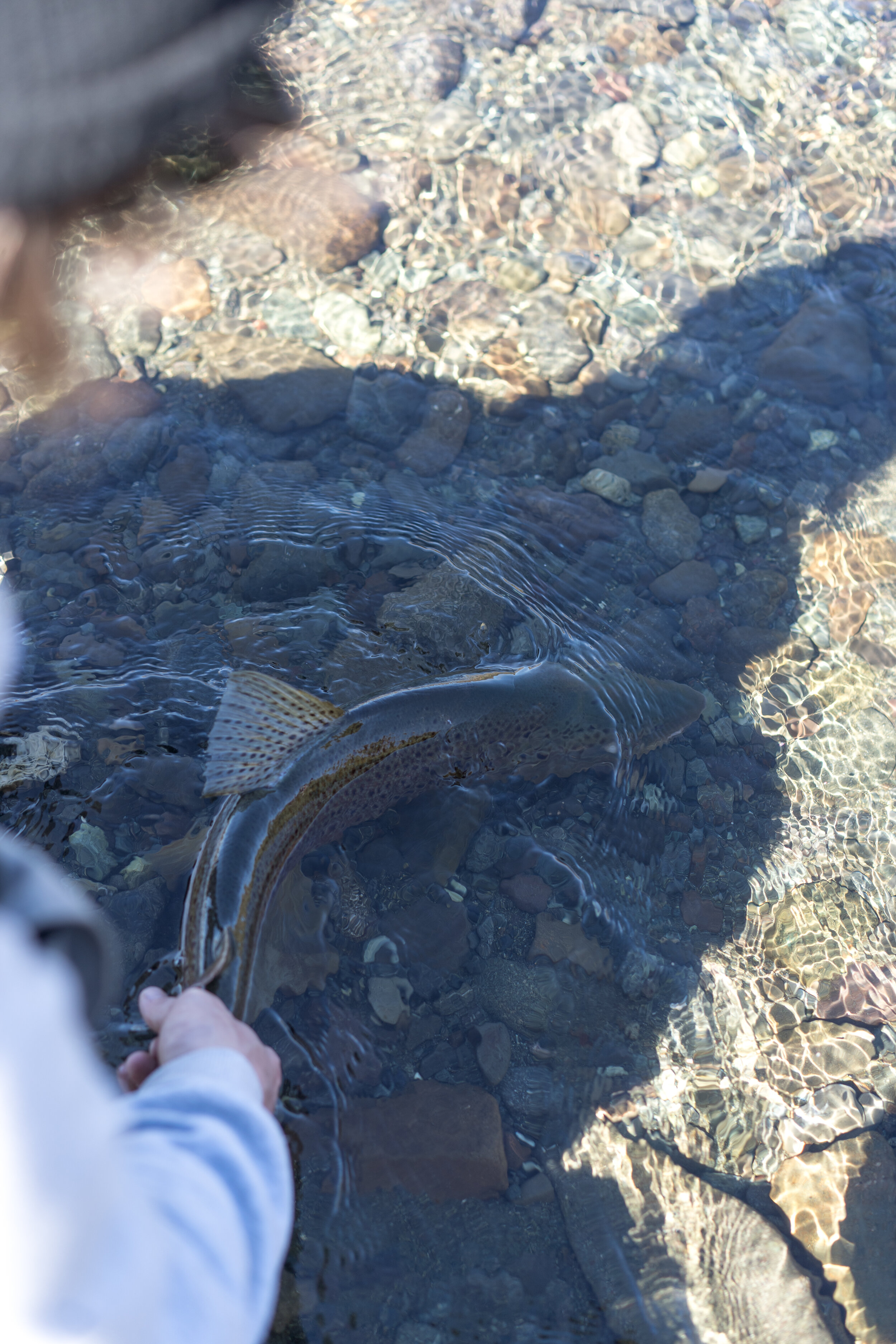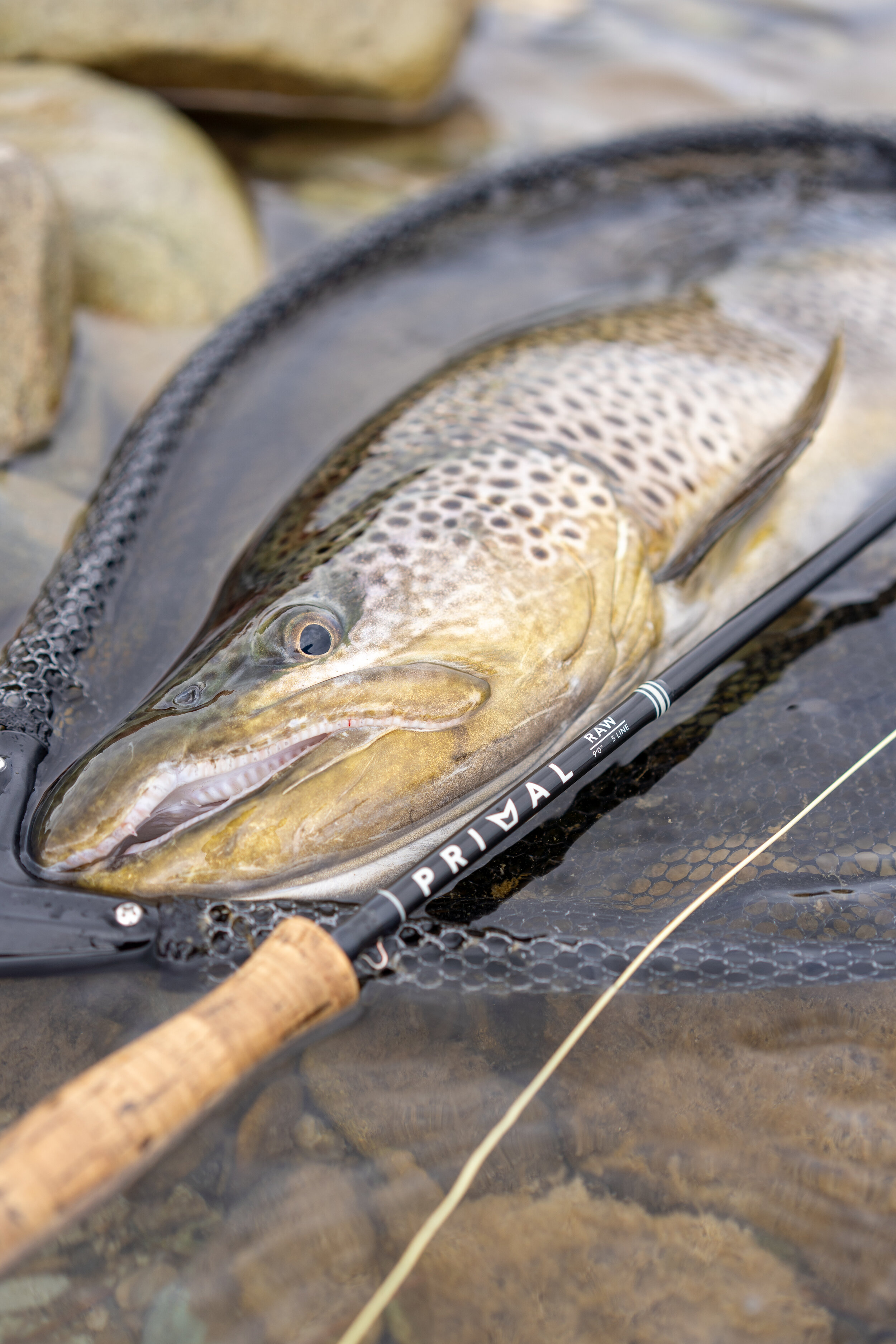Angler Etiquette
A fisherman not just on a back country river but any river or lake will not appreciate the trout being scared off by a disturbance. Some rivers require kilometres of undisturbed water to enjoy a days fishing. If you see another vehicle check the windscreen for a note as to their intentions and abide by them. Leave a note on yours advising wether you are fishing upstream or downstream. Leaving a note with your intension also increases changes of others finding you in case of emergency. Make your self familiar with the angling etiquette guidelines and regulations on Fish and Game New Zealand website and keep the day enjoyable for all.
PLEASE DO NOT EVER push in front or discreetly ‘drop in’ or 'jump' upstream of another angler. In New Zealand, this is the ultimate sin and in all cases, needs to be avoided.
If you need to approach someone who is fishing, do so quietly, keeping well back from the water, and signal your intentions.
If fishing solo, invite an angler you meet to fish with you or share the available water. You may both learn something.
At times it may be just better to find another stream.
Rights of access
Most rivers cross private land and the rights of the land-owner must be respected. Do ask the owner permission before crossing their land. Very rarely is permission denied when asked for. Respect the landowners property. Leave everything as you found it. If a gate is open leave it that way. Likewise if it is closed. Our ability to continue to have free access to cross land is dependent on farmers and other landowners being able to trust that we, as anglers and guests on their land, will behave responsibly.
When parking at F&G designated access points, please follow the instructions on the Signage and leave a note with your intensions. There’s nothing worse than arriving at a long stretch of water capable of entertaining multiple anglers, finding a vehicle parked up and not knowing which way the angler has gone.
It is possible to overstay your welcome by repeatedly fishing the same stretch of water or overstaying in designated camping spots. Not only does this severely effects the fishery but it can upset the local angling community.
Camping at access point does not mean you have the right to claim the spot and it’s illegal at some locations.
Clean all gear when moving between waterways
Freshwater pests, including didymo, could squeeze the life out of our country's most precious rivers and lakes. They can be spread by a single drop of water or plant fragment. You can help to protect your favourite waterways if you always check, clean, then dry any equipment that comes into contact with the water, between every waterway, every time.
The South Island is a controlled area
The South Island is a controlled area for didymo. This makes it a legal requirement to clean all gear used in the water before going from one waterway to another.
So far, no didymo has been found in the North Island but it is good practice to check, clean, and dry when you move between waterways.
The Check, Clean, Dry method
To prevent the spread of freshwater pests (like didymo), whenever you move between waterways you must check, clean and dry all your gear that comes into contact with water. If you don't want to treat your gear, make sure you only use it in one waterway.
CHECK CLEAN DRY
Catch and release
Many of New Zealand rivers, particularly in our more remote, headwater areas are rather fragile in terms of the fishery, particularly our trophy producing streams. They simply cannot take a lot of pressure without suffering, or declining in quality. If you happen to come across one of these hidden gems on your travels, or are given a hot tip from a local, please keep these to yourself to ensure the health of the fishery in the future.
Whilst many rivers are regulated with a daily bag limit it is important to realise the importance of C&R on our more fragile headwater streams. Many of these waters may only host a handful of fish per kilometre, and these are often older, more established resident fish. Release the headwater fish, particularly the lunkers.
Backcountry Fisheries
Currently, there are seven Fish & Game regions in New Zealand with designated backcountry fisheries; Wellington, Nelson/Marlborough, North Canterbury, West Coast, Central South Island, Otago and Southland. When applying for your Backcountry Endorsement you must select each region you intend to fish. You can add another region to your licence at any time.
To fish a designated backcountry fishery, a Backcountry Licence Endorsement is required on your licence. Firstly, you must have one of these qualifying Whole Season Sports Fishing Licences:
Whole Season (Adult, Junior or Child)
Family*
Loyal Senior
Local Area (only qualifies for an endorsement in that region)
Non Resident
If you are a visitor from overseas you must buy a Non-Resident Licence.
Once you have bought a qualifying licence you can apply for a Backcountry Licence Endorsement.
When you have obtained your Backcountry Licence Endorsement, you will receive an updated copy of your licence by email showing the Backcountry Endorsement stamp and listing the regions for which you are endorsed. You must carry this copy of your licence when fishing designated backcountry rivers.
Remember, anglers intending to fish a Controlled Fishery must first obtain a Whole Season Licence and regional Backcountry Endorsement specific to the region where the Controlled Fishery is located.
BE GOOD TO PEOPLE!
















